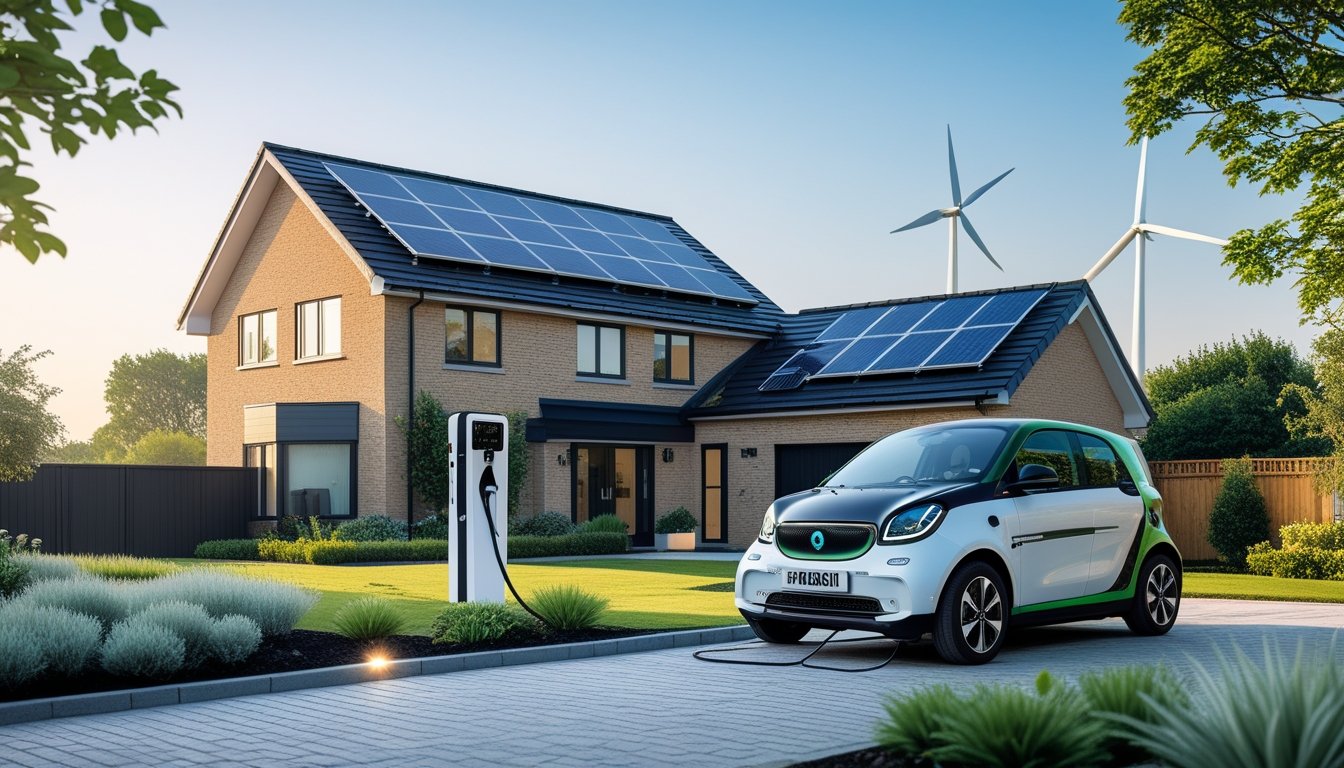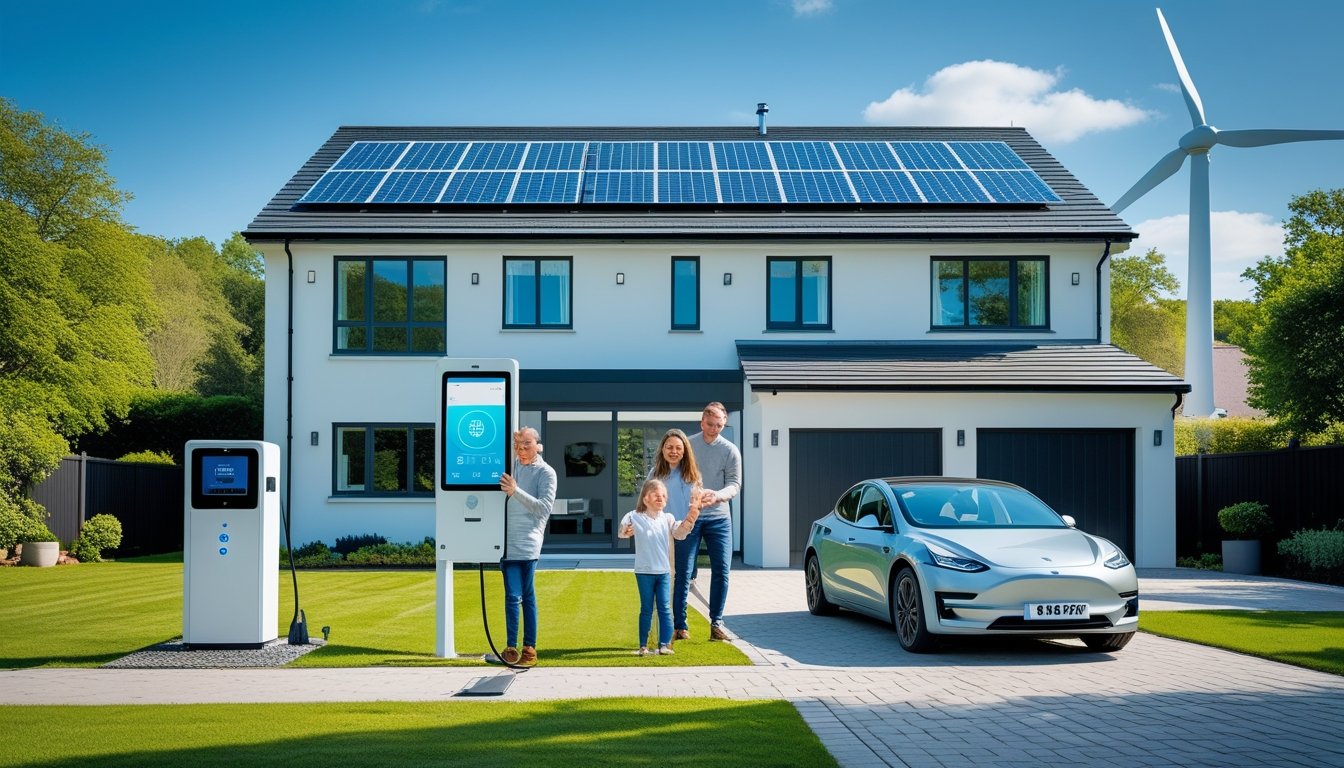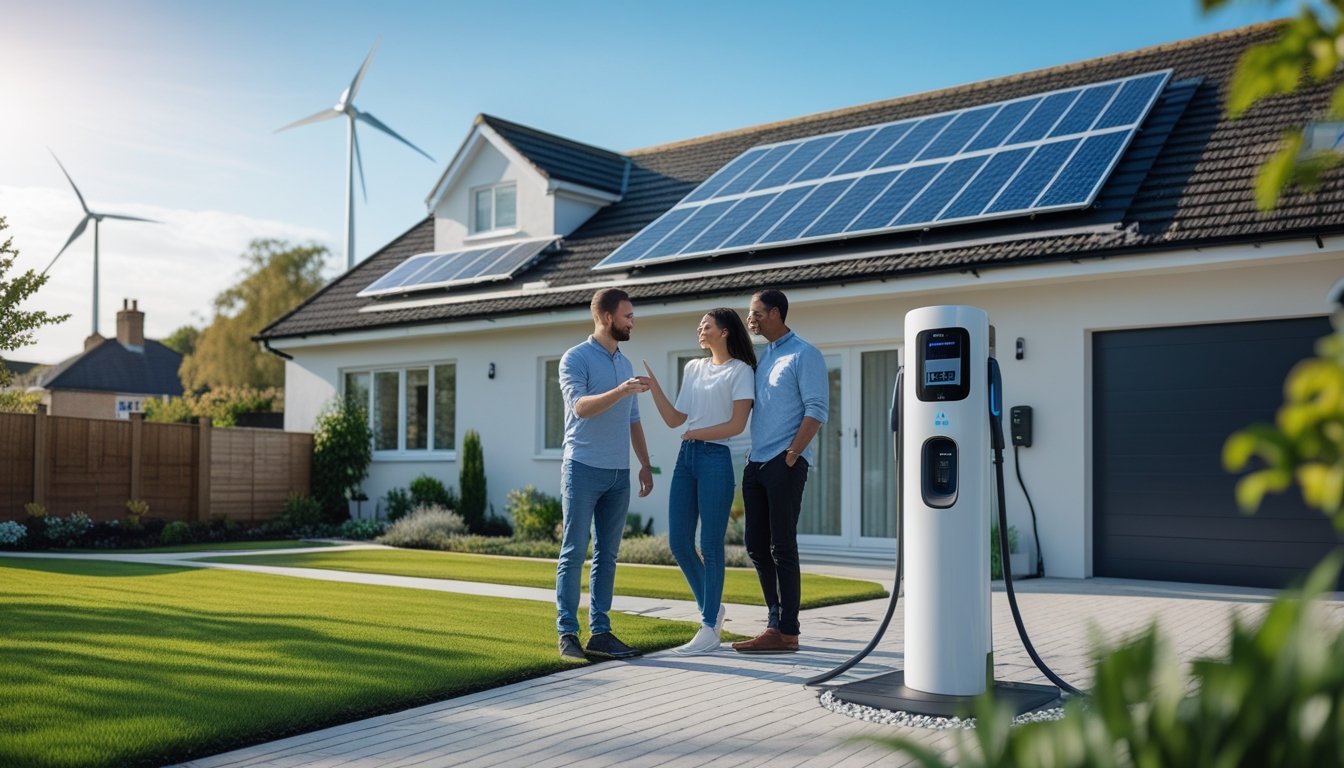Late updated: 06 Oct 2025 12:10
Written by: Oliver Bennett
Emerging Energy Solutions for UK Homeowners: Innovations and Opportunities
As the world shifts towards sustainability, energy solutions for UK homeowners have become a focal point of innovation and investment. With rising energy costs and climate change concerns, many of us are keen to explore how we can make our homes more energy-efficient and cost-effective. Uncovering the latest advancements, such as smart home technologies and renewable energy systems, can equip homeowners with the tools needed for a greener future.

Exploring the options available, we find technologies like solar panels, battery storage systems, and heat pumps leading the charge. These innovations not only lower our carbon footprint but also offer substantial savings on energy bills. The integration of smart technologies with traditional systems provides us with efficient control over energy consumption, further enhancing the comfort and sustainability of our homes.
Given the draughty nature of much of the UK housing stock, upgrading to these modern solutions not only tackles energy efficiency but also improves overall living conditions. It's clear that embracing emerging technologies is not merely a lifestyle choice, but a necessity for responsible homeownership in today’s world.
Key Takeaways
- Emerging energy solutions enhance home energy independence.
- Smart technologies integrate with renewables for efficiency.
- Renewable adoption is crucial for sustainable living.
Key Solutions for Home Energy Independence
Achieving energy independence at home involves leveraging a combination of renewable technologies and innovative equipment. Homeowners focusing on sustainability are increasingly adopting solar panels, advanced battery storage solutions, and heat pump technologies.
Solar Panels and PV Systems
Solar panels are becoming a popular choice for many UK households. They capture sunlight and convert it directly into electricity through photovoltaic (PV) systems. These panels reduce dependence on traditional energy providers and cut down electricity costs significantly.
We can install PV systems on rooftops, which makes them ideal for homeowners looking to utilise existing spaces. Solar energy also offers environmental benefits by reducing our carbon footprint.
Moreover, the initial investment is offset by government incentives and the long-term savings on energy bills. Homeowners can even sell excess energy back to the grid, adding economic value to their investment. An important point to note is that the efficiency of solar panels can vary based on location and maintenance. Therefore, it's crucial for us to consider these factors when planning a solar panel installation.
Battery Storage Integration
Battery storage solutions complement solar panels by storing excess energy generated during the day. This stored energy can be used during peak demand times or when solar production is low, such as at night. We find that integrating these systems is essential for achieving complete energy independence and resilience.
By storing renewable energy, we can maintain a stable power supply and even go off-grid if desired. The latest battery technology offers increased storage capacity and longer lifespans, making them a viable long-term solution.
While the upfront costs can be considerable, the benefits of reduced electricity bills and enhanced energy security make battery storage a worthwhile investment for many homeowners. The continuous advancements in storage technology also mean more efficient and cost-effective options will be available in the future.
Heat Pump Technologies
Heat pumps offer an energy-efficient way to heat homes using renewable energy from the air, ground, or water. By transferring heat from these sources into the home, they provide an alternative to traditional fossil fuel-based heating systems.
The efficiency of heat pumps lies in their capacity to generate more energy than they consume. This feature helps to reduce heating costs and minimises environmental impact.
Various types of heat pumps, such as air-source and ground-source models, are available. Each type is suited to different home settings and climates. While initial costs and installation can be significant, government subsidies and the potential for long-term savings make heat pumps an appealing option for energy-conscious homeowners.
Maximising Renewable Technologies in UK Homes

As UK homeowners look to sustainable energy practices, integrating multiple renewable technologies can enhance energy efficiency and lead to significant cost savings. By focusing on solar power, battery storage, and innovative heat pumps, we can achieve greater energy independence and a smaller carbon footprint.
Combining Solar Power, Battery Storage, and Heat Pumps
Implementing solar panels in our homes is a fundamental step towards sustainability. A photovoltaic (PV) system captures sunlight efficiently, reducing reliance on fossil fuels. Pairing these systems with battery storage solutions allows us to store unused energy, increasing our self-consumption rate and ensuring we have power even when the sun isn't shining.
Additionally, integrating air or ground source heat pumps further enhances our home's energy efficiency. These pumps extract heat from the environment and can be highly effective when combined with solar power. Together, these systems provide a comprehensive solution to maximise energy use and minimise costs.
Homeowner Benefits and Cost Savings
Adopting renewable technologies offers numerous benefits for UK homeowners. By installing solar panels and heat pumps, we significantly reduce energy bills. Solar power typically provides homeowners with a return on investment within several years. There are also government incentives like the Smart Export Guarantee, which pay us for surplus energy exported back to the grid.
Investing in battery storage solutions helps optimise these savings. We achieve greater energy independence by minimising reliance on grid electricity. The combination of reduced bills and potential income from excess power transforms our homes into efficient, self-sufficient units.
Smart Energy Management for Households
Advances in smart home technologies allow us to further optimise energy use. Smart grids and energy management systems can dynamically adjust energy distribution based on demand and availability, ensuring that our homes always operate efficiently.
These systems integrate seamlessly with renewable technologies, enhancing our ability to monitor and control energy consumption. Smart metres track usage in real-time, providing insights for better energy management decisions. By leveraging these technologies, we empower ourselves to attain optimal efficiency and contribute positively to the environment.
Frequently Asked Questions

As we explore emerging energy solutions for UK homeowners, it's clear that renewable energy is becoming more accessible and cost-effective. Government incentives and technology advancements are aiding homeowners in making energy-efficient choices.
What are the most cost-effective renewable energy options for homes in the UK?
Solar panels stand out as a popular choice, offering initial savings and long-term returns on investment. Wind turbines and heat pumps are other viable options, albeit with different installation costs and energy outputs, dependent on location and specific energy needs.
How can homeowners in the UK benefit from solar panel installations?
Solar panels can significantly reduce electricity bills by generating surplus power, which can be sold back to the grid. With proper maintenance, they offer decades of clean energy production, contributing to lower carbon emissions and increased property value in the long run.
What government incentives are currently available to support home energy efficiency upgrades?
The UK government provides several schemes like the ECO4, GBIS, and Boiler Upgrade Schemes. These programmes offer grants and financial assistance to support energy-efficient improvements, making it easier for homeowners to transition to sustainable energy systems without bearing full costs upfront.
What are the best practices for integrating smart home technology with home energy systems?
Connecting home energy systems with smart technology allows for optimised energy usage. We should ensure seamless integration through compatible devices, proper system configuration, and user training. This setup enables us to monitor and adjust energy consumption efficiently, resulting in cost savings and improved energy management.
How does ground source heat pump installation impact home energy consumption in the UK?
Ground source heat pumps leverage the consistent underground temperature to heat homes efficiently. While their installation can be costly, they significantly lower home heating expenses over time. They are highly effective in reducing reliance on conventional heating systems, leading to substantial energy savings.
What steps should UK homeowners take to prepare their homes for electric vehicle charging?
To prepare homes for EV charging, installing a dedicated charging point is crucial. It's advisable to assess electrical supply capacity and install a home charging unit compatible with personal electric vehicles. Utilising scheduling features can also help in managing and optimising energy use during off-peak hours.
